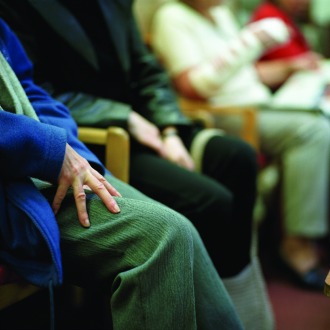GP died by suicide after fears over sharing his mental health diagnosis, inquest hears

Dr Miles Christie, a GP in London, died by suicide following fears that he would lose his job if he voiced the state of his mental health, an inquest has heard.
Dr Christie, who died in May this year after falling from a bridge in North London, had worked daytimes as an NHS GP at Burnley Medical Practice in Willesden, north west London, and nights at the private Knightsbridge Doctors in west London, where he planned to move to full-time.
Prior to his death, the court heard that Dr Christie had resigned from the NHS, but had expressed concerns about the costs of taking over the Knightsbridge practice. He began working longer hours, lost approximately 17.6 lbs in weight, experienced symptoms of anxiety and was accompanied by his father Dr Peter Christie, a retired paediatrician, to see a psychiatrist days before his death.
The hearing was also told that in the days prior to his death, Dr Christie was sent five invoices mistakenly informing him that he owed money to cover a gap in his Medical Protection Society (MPS) membership, totalling around £48,000. However, he actually only owed £3,000.
However, the coroner said these money worries did not explain his death fully.
Coroner Mary Hassell concluded: ‘He was an excellent doctor. He was very in demand. He had quite obviously a tremendously loving family and everyone wanted to help him out. There is absolutely no doubt in my mind that he did take his own life.’
She added: ‘I don’t think that the money worries or the work worries or any of the worries explain why.’
He said: ‘As people become more aware of mental health in society, we have got to become more aware of the people who are taking care of us. Who are looking after the people who take care of us? They are working in very tense environments and they are not mental health themselves.’
His widow, Juliette Stern, also urged for greater support for medical professionals who are reluctant to seek help for their mental health, out of fear that it being on the record could prohibit them from practicing.
Ms Stern said: ‘Suicide is far more prevalent in the medical profession generally. We need to understand why this might be and getting them support rather than being concerned with their ability to practice. He was deeply concerned about a mental health diagnosis going on his record and affecting his ability to work.’
Dr Christie’s brother, Phil Christie, emphasised the stigma surrounding doctors and mental health.
Dr Rob Hendry, medical director at MPS, told Pulse: ‘We were deeply saddened to hear of the death of Dr Christie, and again extend our condolences to his family.
‘We take the welfare of members extremely seriously and have looked closely at our systems and processes. Corrections have been made where necessary.’
The GMC’s annual survey found that a third of trainee doctors don’t know who to speak to at work about wellbeing concerns, while the BMA have called for equal treatment doctors’ mental and physical health.
Visit Pulse Reference for details on 140 symptoms, including easily searchable symptoms and categories, offering you a free platform to check symptoms and receive potential diagnoses during consultations.









